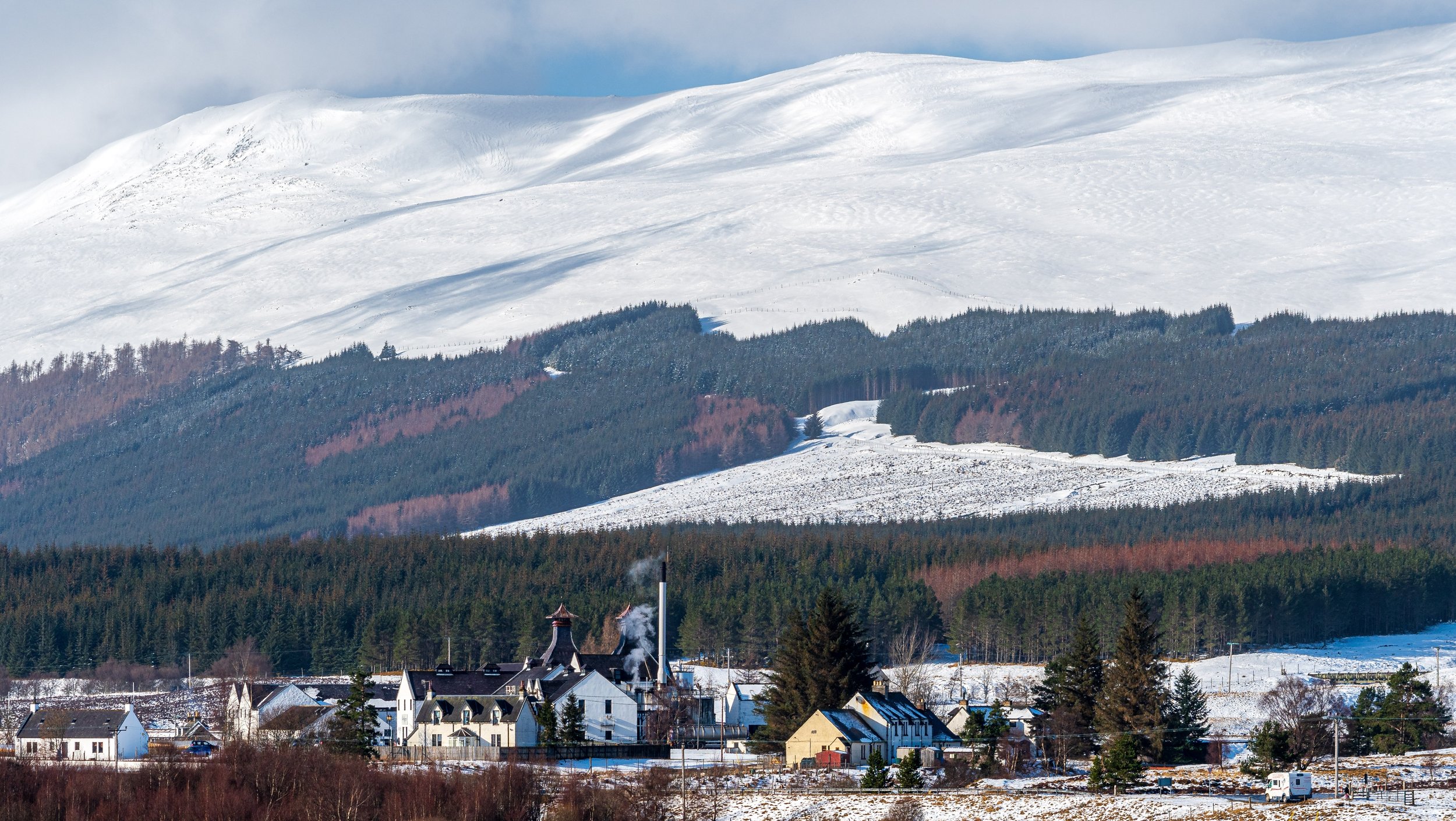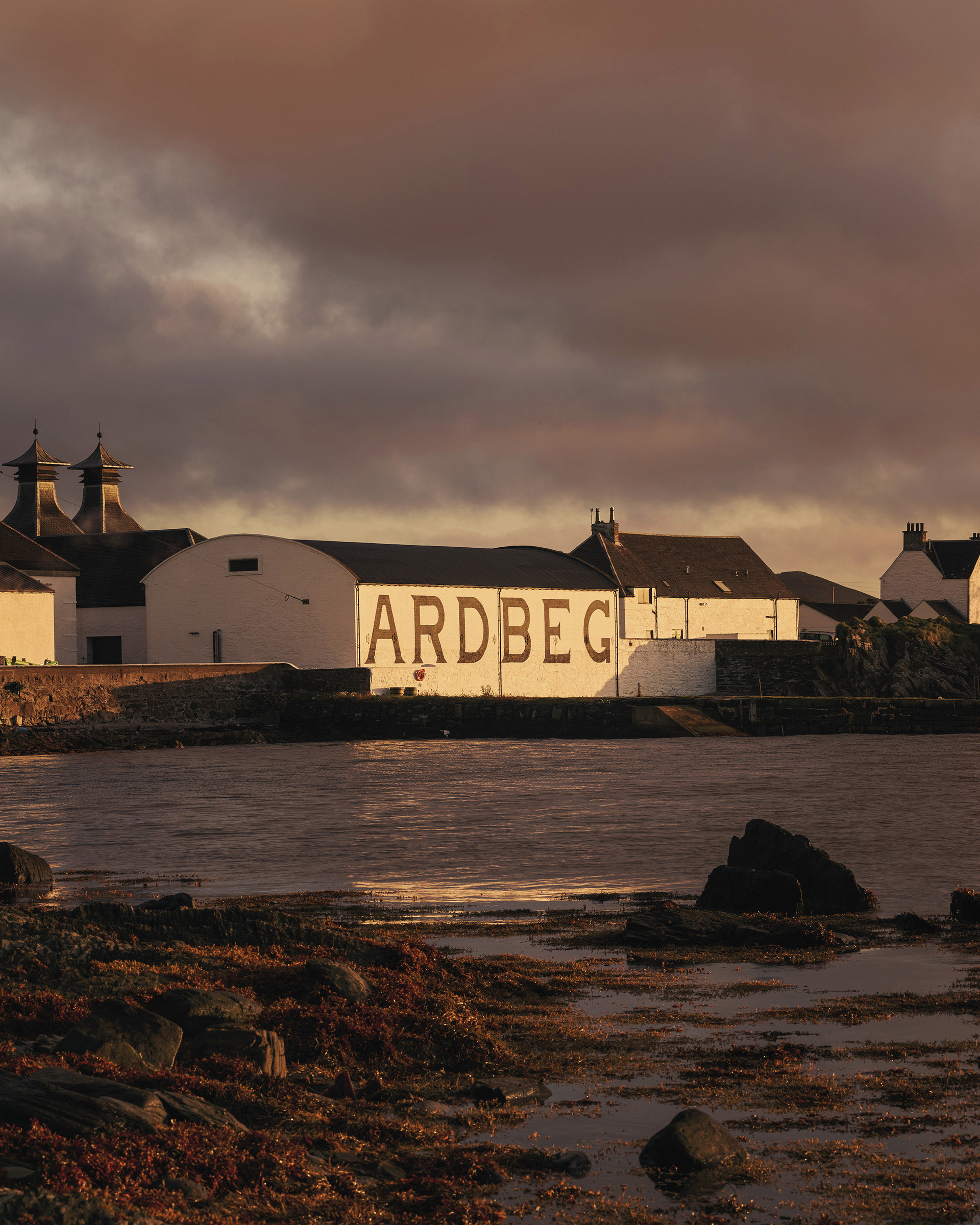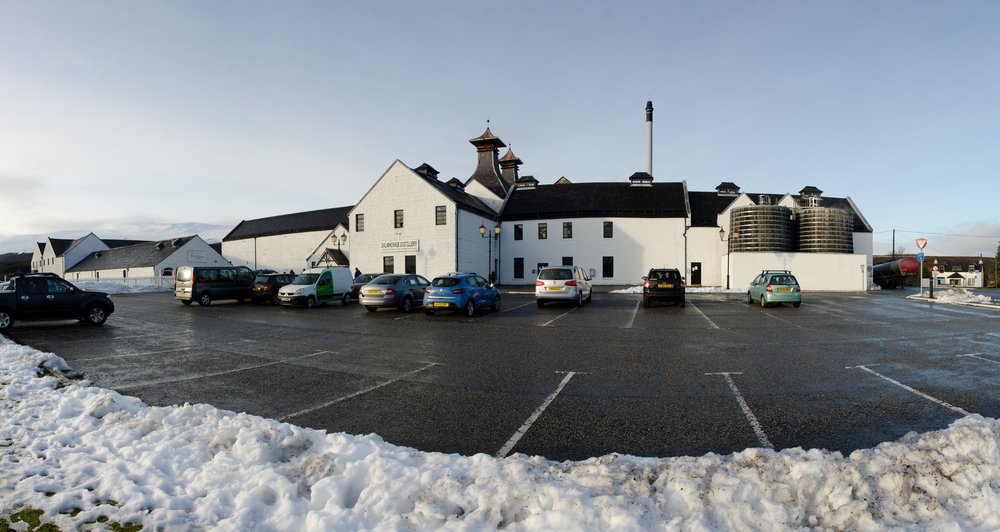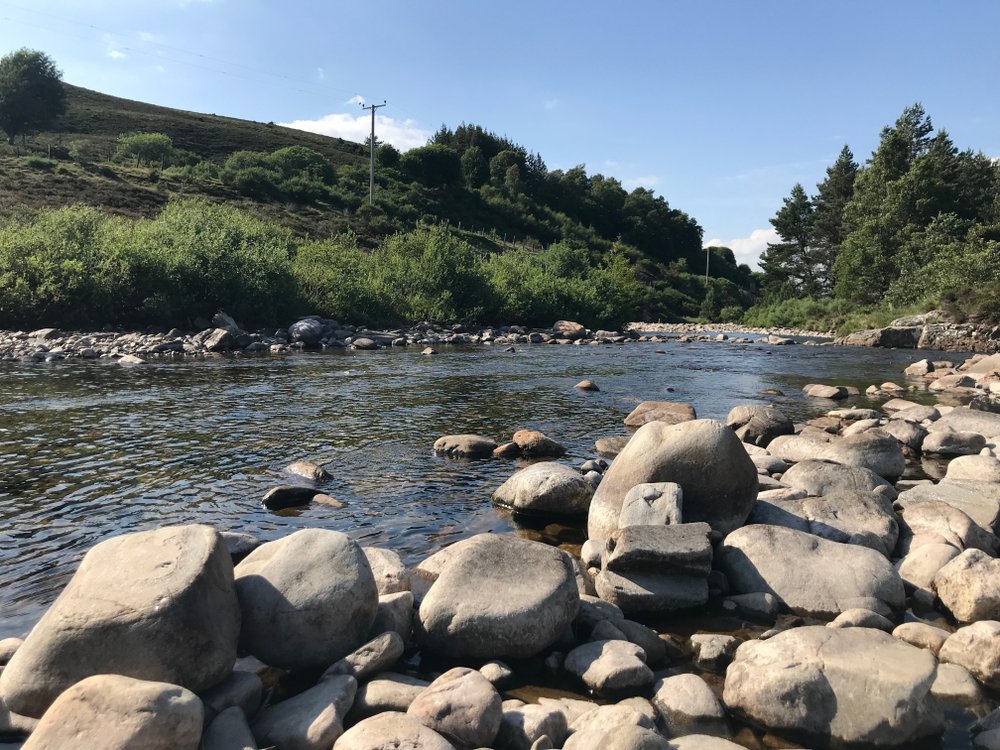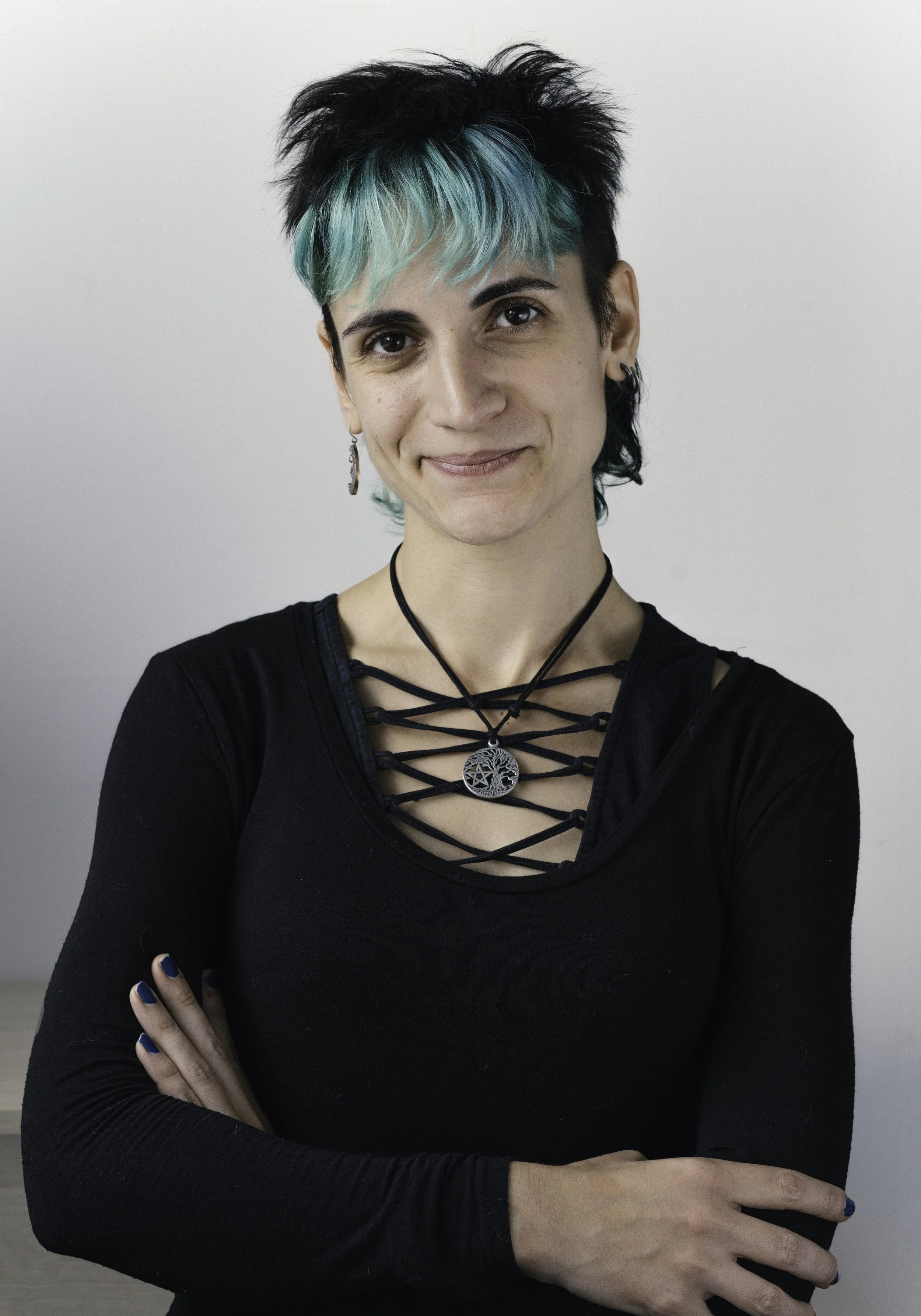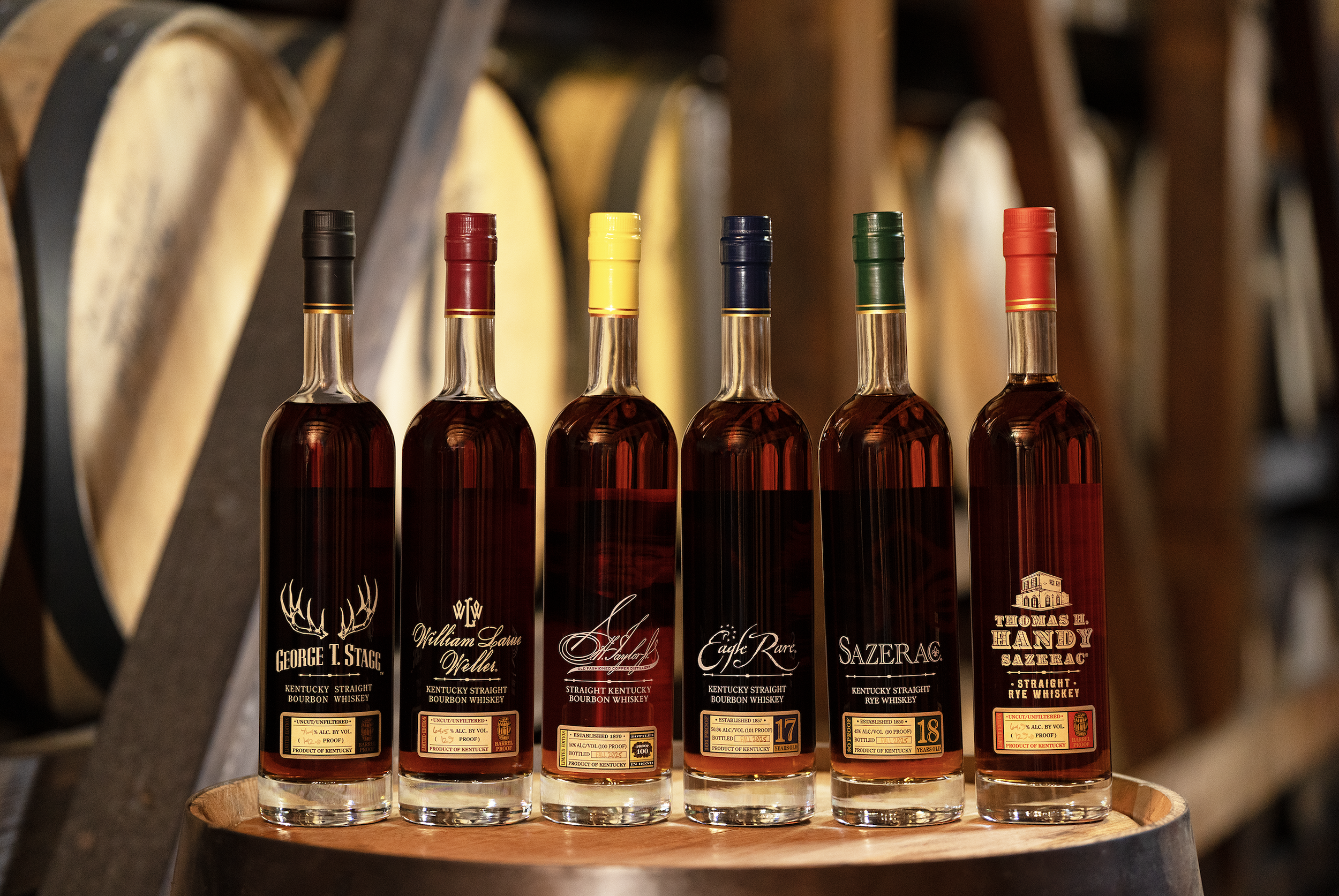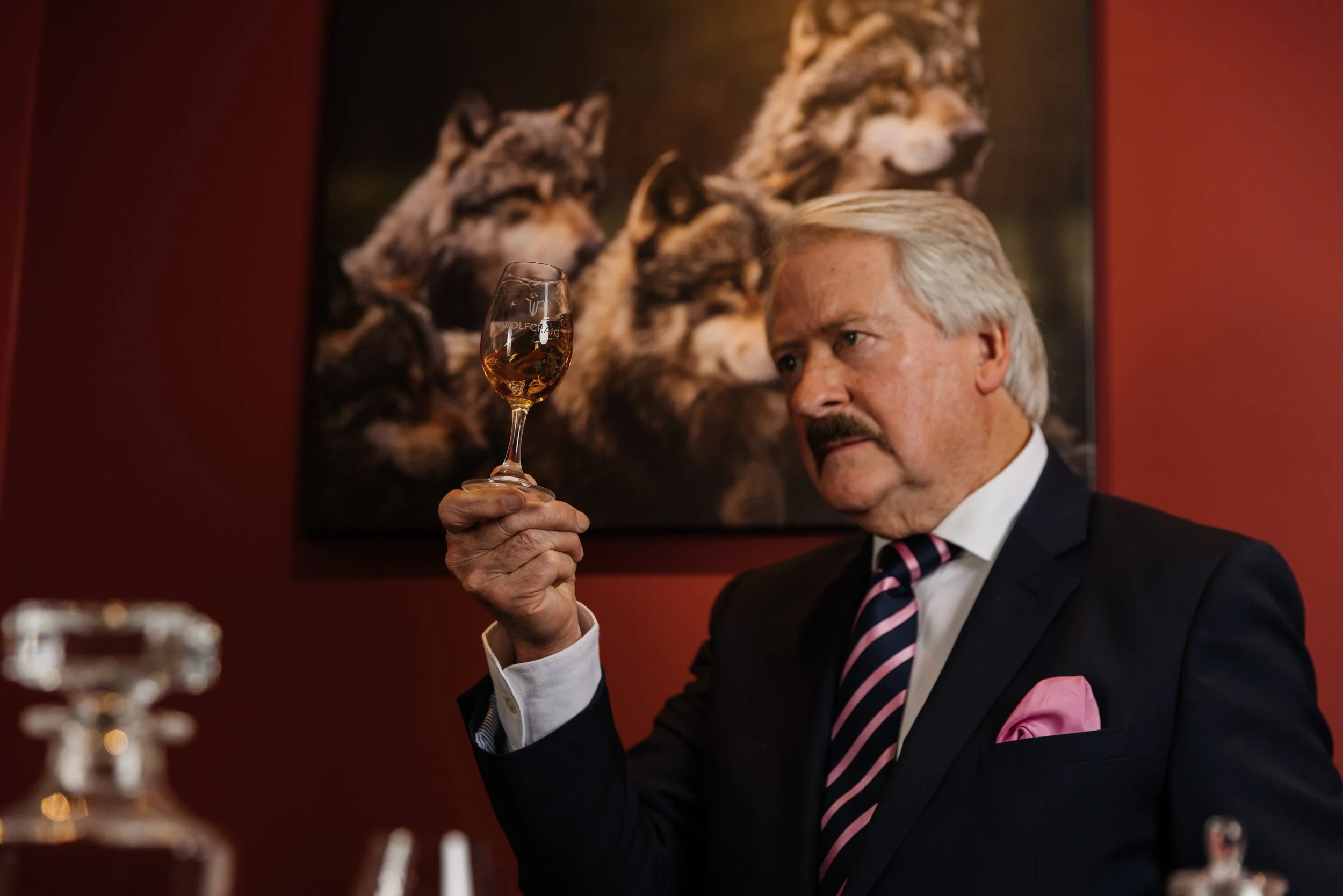Dalwhinnie dreams
A cold November morning over Dalwhinnie
During a memorable visit to Dalwhinnie distillery, Alba Chiara Di Bari is transported back in time by an extraordinary tale of a perilous rescue mission, pitting courageous locals against the unpredictable and unforgiving forces of the Highland winter…
Standing proudly in silent retirement, flaunting their shiny copper roofs, Dalwhinnie distillery’s kilns are one of the most recognisable sights of the A9 artery that links Perth to Inverness. The sole human dwellings in miles of untamed moorland, for over a century they have guarded the north side of the village, made up of a pub, a hostel that once was a school, and a fuel station.
As I left the pagodas behind and walked through the desert streets of Dalwhinnie on a frosty November night, I thought of peat fires. How comforting the smell of civilization must have been to those crossing the Highlands in the past, during rigid winters. Crofters herding their cows along the main road, hunters on the lookout for a white deer, officials on the tail of bootleggers. They would smile at the glimpse of the chimneys predicting a hot meal at the inn, and possibly, a dram distilled by the tenacious people that lived there.
People like Agnes, distillery guide, who that afternoon proudly told me that both her father and grandfather worked in the production before her. Pouring a glass of Dalwhinnie for the tasting, she admitted how they were sure that the cold winters affected the smoothness of the whisky. But distillers are known for being superstitious, and those were different times.
‘Crofters herding their cows along the main road, hunters on the lookout for a white deer, officials on the tail of bootleggers’
Times when Loch Ericht would freeze, and a thin layer of frost covered the water of the worm tubs between distillations. Storms would rage for weeks, and snow fall drifted up to 6-feet, forcing people to climb out of their houses through the windows. Burns would flood, blocking the roads and the rail tracks, isolating Dalwhinnie for days, often longer.
Despite the merciless weather, the whisky crisis, and the Prohibition, the workers at the distillery kept firing their stills, turning on their kilns, rolling out oak casks. Then, a fire damaged part of the buildings in 1934, halting production.
Angus MacDonald, Agnes’s grandfather, was appointed distillery manager, in charge of the reopening. Having lived and worked there since young age, he was highly respected by the community, and did not hesitate to work together with his men to repair the machinery and, if necessary, free the roads and the tracks from the snow.
Snow surrounds the the Dalwhinnie distillery
As the only man responsible for the weather station outside the distillery, Angus was aware of the uncertainty of winters, and kept the tradition of his predecessors of having rooms and a full-time cook on site for his workers. He was a generous man and would not refuse shelter to stranded travellers if the inn was full, often entertaining them with a dram and stories of brave Highlanders facing unpredictable forces of nature.
In the chilly winter of 1910, Dr Donald MacDonald from Laggan received news that Joseph MacCook, assistant gamekeeper at Ben Alder Lodge, was severely ill. His family cottage was 22 miles from the doctor’s office, past Dalwhinnie, on the southern banks of Loch Ericht: a journey that in those conditions could be fatal. The nurses tried to dissuade the doctor, but he did not listen - a soul was a soul - and at 7 o’clock in the morning, he took his medical bag and left with his car.
“As they reached higher ground, Clark found the crossing, and soon, the three men were up to their chests in the water. Holding hands against the stream, they reached the other side”
The roads were badly flooded, and even when the sun rose and lightened the clouds Dr MacDonald struggled to see where he was going. The storm worsened as he got closer to Dalwhinnie, so he abandoned his car near what he thought was the fuel station and continued on foot. Wrapping himself in his Inverness cape and pushing his hat down on his head, he walked towards the lights of Ben Alder Lodge on the northern side of the loch.
There, the overseer of the estate, John Clark, set out to guide him to reach Benalder Cottage where MacCook lived, 12 miles away. A 50-year-old man, with shoulders stiffened by years of outdoor work and rheumatism, Clark tried to rally the other labourers, but his words were covered by the fierce winds mounting outside. Only young John Bain volunteered to help them, his mind to his father alone in another cottage.
The Dalwhinnie Burn which swells with the winter rain and snow
The three men embarked on their dangerous journey, and soon found out that the loch had swallowed most of the path along the banks. With the streams swollen by days of rain and snow melting from the mountains, their only hope was to walk up, towards the ridge of Ben Alder, and traverse them closer to their sources.
As they reached higher ground, Clark found the crossing, and soon, the three men were up to their chests in the water. Holding hands against the stream, they reached the other side and took a moment to breathe, but there was no turning back. For hours they walked along the ridge, in the forest, across bogs, their clothes weighed down by the rain and their boots by the mud.
Darkness had fallen for some time when Bain pointed to the outline of a house downhill, near the loch. Elizabeth, MacCook’s wife, opened the door and took their wet coats, thanking God for having guided them there. The doctor immediately tended to the patient, while the woman offered a soup dinner to the group.
The two guides accepted gladly, but MacDonald, without looking away from his blood pressure gauge, refused. The patient had pneumonia, and he would not accept any distraction until he was able to relieve him of his pain.
‘For hours they walked along the ridge, in the forest, across bogs, their clothes weighed down by the rain and their boots by the mud’
The doctor was awake all night, and when morning came, the old man started breathing normally. He would survive. Even the storm outside calmed down, but word of that selfless 11-hour journey in perilous weather did not need the wind to run wild. Less than a year later, the Carnegie Fund awarded the three men a medal for their courage and determination.
“‘Every day, at the distillery, we work for people like them”’, Angus would say, raising a glass, said Agnes, ending her story. “And I say that every day, I have the honour to work with people like them.” She raised a glass towards her colleagues around the visitor centre. “To the people of Dalwhinnie.” We cheered together.
I was foretasting a dram of whisky to go with dinner, when I reached the southern edge of the village near the fuel station and realised that the pub and the shop were closed for the day. As a naïve city mouse, I had been misled by short opening hours and a longer chat with the distillery guide. Lowering my head and smirking at my rumbling stomach, I started walking back towards the hostel, resigning myself to a dinner-less night.
A car stopped at the edge of the street. It was Agnes, from the distillery. “Have you found anything to eat?”
I shrugged my shoulders. “Not really. I’ll make up tomorrow at breakfast.”
“Come on, jump in”, replied Agnes, gesturing towards the passenger seat. “I might not have a guest room like Angus had at the distillery once, but I always have a bowl of soup for a guest. And I promise that I won’t tell you the story of Dr MacDonald again!”
“Oh, you can tell me all the stories you want!” I said, smiling as I got into the car. Once again, the gentle spirit of the Highlanders, forged by cold winds and heartening fireplaces, had warmed up a weary traveller’s evening.
Alba Chiara Di Bari is a storyteller & tour guide with a passion for whisky, currently working for Johnnie Walker

